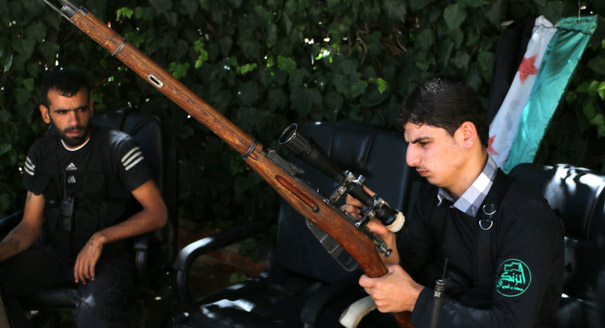Source: Project on Middle East Political Science
Speaking with George Washington University’s Marc Lynch, director of the Project on Middle East Political Science, Carnegie’s Raphaël Lefèvre discussed the Syrian Muslim Brotherhood, the Syrian civil war, and Lebanon. When asked about the role the Muslim Brotherhood played in the Syrian uprising, Lefèvre explained that the group had been in exile for a long time, so it had to work very hard to gain a measure of influence on the Syrian uprisings.
It did so through various different ways, continued Lefèvre: “At first, it took a leading role in the Syrian opposition—first the Syrian National Council and then the National Coalition. It tried to do some work on-the-ground inside Syria in rebel-held areas, doing some humanitarian work. It started a series of militias as well, trying to gain influence on the Syrian rebel scene, but that was, unfortunately for them, very unsuccessful because at that point in time...the extremists in Syria were on the rise and posed a serious challenge to the Syrian Muslim Brotherhood.”
This interview was originally published by the Project on Middle East Political Science (POMEPS).
